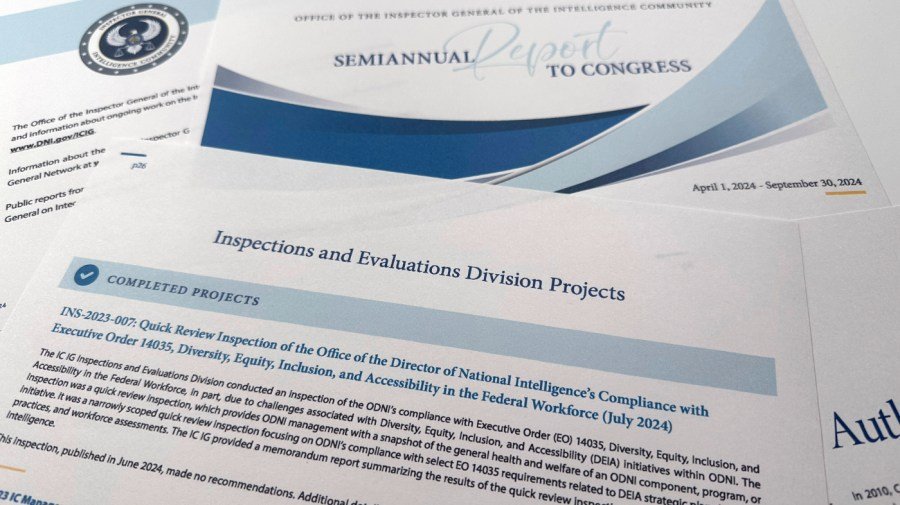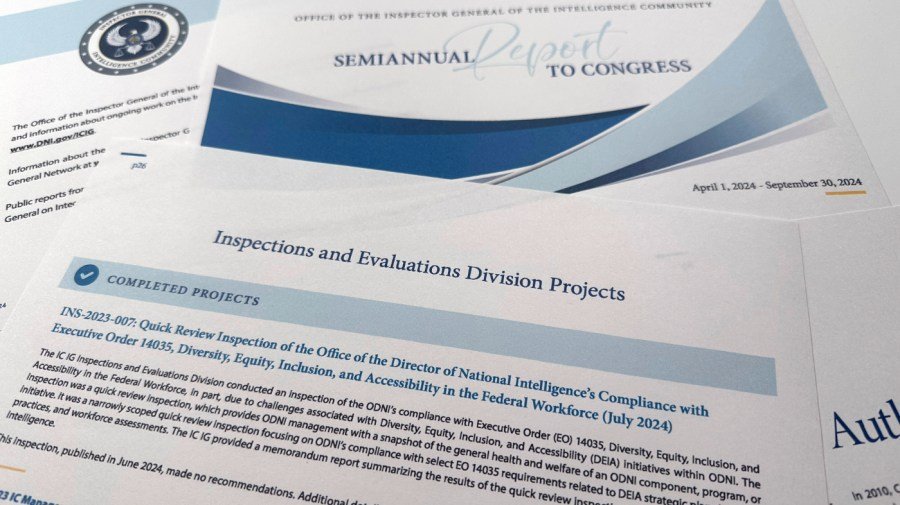A better way to end DEI: Pass a law

In its first days, the Trump administration issued executive orders to end taxpayer funding of Diversity, Equity and Inclusion practices. I support that goal. But how leaders make policies determines whether those policies endure.
Ending DEI requires something more democratic than executive orders the next president can undo with the stroke of a pen. Instead, congress and the president should do something novel—hold hearings, have debates, and pass a law.
One need not be a Trump supporter to agree that the president is right to criticize most DEI practices. As Helen Pluckrose and James Lindsay detail in “Cynical Theories: How Activist Scholarship Made Everything About Race, Gender, and Identity,” critical race theory, postcolonial theory (which calls for destroying Israel), gender studies, and related academic fields provide intellectual support for DEI to define people as victims or oppressors based on their identity, while rejecting objectivity, individual rights, merit systems, and chromosome-based (binary) definitions of sex.
DEI is an upper-class mass movement using social media mobs and nontransparent bureaucracies to impose racial and demographic essentialism, including quota-based hiring and admissions systems.
Like most Americans, I dissent. With Craig Frisby, I co-edited “Social Justice Versus Social Science,” showing that common DEI practices like diversity training typically do more harm than good. Empirical social science likewise fails to support concepts like microaggressions, white fragility, and implicit biases.
Elite colleges, as Richard Sander points out, use racial quotas in admissions, setting up underprepared minorities for academic failure while admitting wealthy whites over less privileged but better-prepared Asians, just as 20th-century antisemites kept out Jews. As Chief Justice John Roberts wrote, “It is a sordid business, this divvying us up by race.” It is also central to most of DEI.
Professors leveling these critiques risk isolation and even termination at the hands of activists and bureaucrats, as Foundation for Individual Rights and Expression data show. Often, critics are never hired in the first place, screened out by required DEI statements or ideological hiring committees. As Robert George and Anna Krylov detail in “The Ruthless Politicization of Science Funding,” even in the previously apolitical hard sciences, the Biden administration used executive orders to replace scientific merit with ideology or identity in assigning tens of billions of dollars in grants, changing the culture of research.
In short, the Trump administration is right to oppose DEI’s massive resistance (to use a 1950s term) to colorblind merit systems. Yet executive orders are the wrong means to deconstruct DEI. To see why, consider Title IX. As political scientist Shep Melnick detailed in “The Evolution of Title IX,” the Obama administration used executive orders and nontransparent regulatory guidance (“dear colleague letters” to campuses) to erase the biological (binary) definition of sex and empower massive censorship bureaucracies to enforce “equity.”
The first Trump administration revoked these policies, which were later reimposed by President Biden. That executive seesaw degrades both effective administration and democratic legitimacy.
Instead, we should copy the passage of the 1964 Civil Rights Act, which helped defeat an earlier version of racial essentialism. Media accounts and congressional hearings established the need for the law. As Phillip Wallach details in “Why Congress,” debates over the CRA stretched through the spring of 1964, including an amending process and a senate filibuster by southern Democrats. After three months of this, the CRA passed with a strong, bipartisan majority. That sent a message.
Segregationists lost decisively, but a democratic process giving the losers their say legitimized the CRA. That fair and open process enabled southern Democrats to tell their white constituents, as Senator Richard Russell (D-Ga.) said after CRA’s passage, “all good citizens will learn to live with the statute and abide by its final adjudication.” Massive resistance suffered a mortal wound.
Apply this to today’s versions of racial essentialism. Congress should hold lengthy hearings investigating DEI’s politicization of science, personnel systems, and college admissions, like the hearings Congresswoman Virginia Foxx (R-N.C.) held in the last Congress uncovering campus antisemitism, itself fostered by DEI. Congressional leaders should then craft bills outlawing DEI practices that undermine the colorblind merit systems most Americans of all races support.
Good people often have bad ideas. Like 1960s southern Democrats, today’s progressive Democrats believe in racial essentialism and will filibuster to defend it. That’s fine. If progressives want to brand themselves as supporters of censorship, racial quotas, and antisemitism, they have every right to do so. Racial and demographic essentialism will be defeated through open debate and legislation, just as in 1964. The resulting bipartisan legislation will have the legitimacy and legality to last across presidential administrations.
That’s democracy. Our elected leaders should give it a try.
Robert Maranto is the 21st Century chair in Leadership in the Department of Education Reform at the University of Arkansas, and a founding member of the Society for Open Inquiry in Behavioral Science. These opinions may not reflect those of his employer.




Post Comment